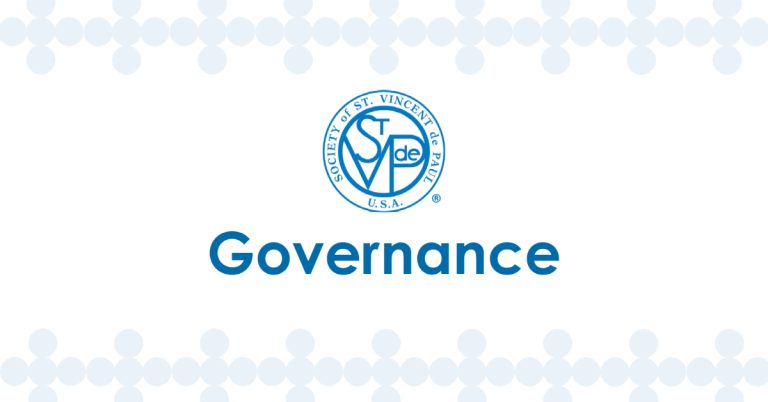Last week we discussed five groups of people who should be considered stakeholders in what we do as Vincentians. Here are five additional groups:
- Collaborative Nonprofit Organizations
- Governmental Entities
- The Community At Large
- The Local Bishop (in the case of all Catholic organizations)
- Pastors and Clergy (in the case of any Catholic organization supported by a parish)
Other nonprofit organizations are stakeholders. We all share a common goal to some degree. All nonprofits influence other nonprofit organizations in their community. Especially important are those nonprofits that we partner with. If the Society does something to damage its reputation, then those that collaborate with it also may suffer collateral damage.
Every nonprofit needs other nonprofits to accomplish larger projects. With diversity of missions nonprofits can share the overall needs of those served by sharing our strengths with each other. For example, a person may need shelter that is provided by another nonprofit while the same person also needs clothing or food that is available from our Society.
The city, county, state, and federal governments are additional stakeholders. Nonprofits and their volunteers are significant contributors to the support of the responsibilities of all these governmental entities. If federal and state governments did not allow donations to nonprofits to be tax-deductible, much of our work would be impossible to fund. If nonprofit organizations did not exist, it would be left up to the governing bodies to provide necessary services to the public. Government agencies are very interested in what is done, how it is done, and the level of effectiveness and efficiency with which it is accomplished. They are also responsible to ensure that all laws are followed and that services provided do no harm to those who are served.
The entire community is a stakeholder. It has an interest in how those in need are served. The overall community and its image are improved when the disadvantaged are taken care of. The community is then thought of as a better place to live, raise children and experience a better quality of life. Where the care of those in need is provided by nonprofits, the taxes necessary for broader social services are lessened.
Residents of the community often consider themselves “owners” of our Society. Because the people of the community see our work, some become donors, some volunteer and some know of someone who was served. Most agree with our work and readily identify with what we do even though they may not be directly involved. They may simply know that the Society of St. Vincent de Paul is in their community and helping the poor. That knowledge is important to them.
The finances of the nonprofit corporation are also more important to a wider community than the finances of a for-profit. Everyone who contributes in some way, who receives services, or who simply knows about its work consider themselves an owner or stakeholder. There is a perceived level of stewardship by the community. They expect the nonprofit to be run efficiently and that the money donated or granted to it goes toward intended programs. In fact, many people believe that nonprofit organizations should have plain, inexpensive offices and equipment. To them it is an indication that most of the donations are given to the poor and not to the people running the nonprofit. The people of the community will not tolerate what they consider to be excessive salaries. In their eyes a nonprofit employee is really a dedicated volunteer and does the work because of a love of the mission and not for a well-paid job. For many employees that is a reality.
In our Society we recognize the need to maximize the amount of our donations that goes directly to those in need. But that maximization cannot come at the expense of our employees who deserve adequate wages. The Society’s Voice of the Poor Committee has developed a policy about a just wage for our employees. That policy has been approved by the National Council Members.
In the case of Catholic organizations, the local Bishop is responsible for all activities related to the Church in his Diocese. Because our Society is in the Diocese at the pleasure of the Bishop, he is a stakeholder. He allows us to be in the parishes because of our close relationship to the Church and the work we do for Christ’s poor. Because the way we operate directly reflects on the Diocese in the eyes of the community, and because our Society also contributes to the spiritual growth of its members and evangelizes by its members’ actions, the Bishop has great interest in what we do. He knows that we assist in fulfilling the Church’s preferential option for the poor. This vital relationship requires regular and close attention. Keeping your Bishop informed about the activities and achievements of your Council should be a high priority.
Pastors and Clergy are stakeholders for reasons similar to those of the Bishop. Our presence in the parish helps the pastor and other clergy serve the poor and relieves the parish burden of responding to the needs of people coming to the Church for assistance. Always keep in mind that St. Vincent de Paul serves in the parish with the pastor’s permission.
(The source of this article is Governance: Council and Board, the original version of which was authored by former National Vice President Terry Wilson.)

